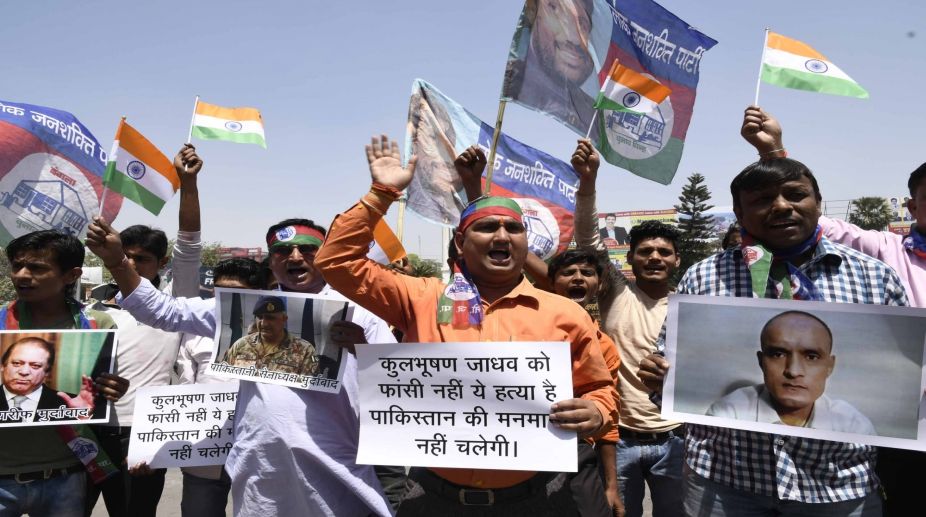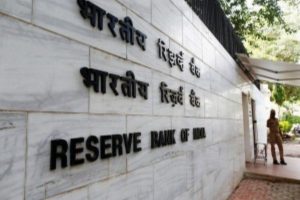The recent events involving charges of spying between India and Pakistan have further poisoned the atmosphere and sharpened the confrontation between the two countries. The Indian national at the centre of the event was picked up by the Pakistani security agencies as a supposed spy and, having been subjected to trial by a Pak military court, has been sentenced to suffer the ultimate punishment of the death penalty. He languishes in military detention and as there is only a short period of appeal before the sentence is carried out, tensions are rising. The fate of the prisoner is the overwhelming Indian concern and every effort is being made by New Delhi to stave off the sentence and bring him home.
Mr Kulbhushan Jadhav, the individual now under threat, is a former Indian naval officer who has lived in Iran for a number of years after retiring from his naval career. He established a business enterprise in Iran and became a regular visitor there, which may have registered with Pak intelligence owing to habitual suspicion of outsiders in its border area, so he was picked up by intelligence officials in Pakistan’s province of Baluchistan and accused of spying for India and inciting disorder. Baluchistan is a restive place and needs no push from outside to rise up in revolt; this is a long-standing issue within Pakistan where a simmering uprising has been in progress for decades, with occasional flare-ups, testifying to the tenacity of local Baluch sentiment.
Advertisement
The endemic trouble in the area has made the authorities touchy and all too ready to look for scapegoats. As it is, Indo-Pak relations are at a nadir and unprotected Indian nationals in the Pak border areas are vulnerable to the machinations of the security agencies. Whatever the provocation, and responding perhaps to the disturbed local situation, Pakistan decided to swoop on Mr. Jadhav, arrest him, and incarcerate him on charges of spying. Such events happen from time to time in the constantly surcharged Indo-Pak atmosphere, but in this case Pakistan took the unusual step of committing the prisoner to military detention and placing him under the jurisdiction of a military court. This court, following summary military procedures, has rapidly tried and condemned him, without disclosing much about the charges or the procedures, and to the horror of all who have been witness to the proceedings, has condemned Mr. Jadhav to be executed.
This sentence has created outrage in India. To make matters worse, Pakistan has refused consular access for the prisoner, which is a routine matter even when the most serious accusations are levelled. Pakistan has claimed that there has been a full confession and that in cases of alleged espionage consular access may be denied but this is an unconvincing and perfunctory response. Even though the civilian head of the Pak foreign office has tried to explain the rationale for this severity, the strong impression remains that the Pakistan army has taken the initiative and insists on having its way. And once the army insists, the civilian authorities can do little to restrain it.
In these circumstances, the attempt to avert the looming tragedy requires concerted effort to rally the international community and press Pakistan to back off from the disastrous course on which it has embarked. As it is, there is growing international resistance to capital punishment, and almost all of Europe has abolished the death sentence, even in wartime let alone in conditions of relative normalcy. This global change of sentiment is something that every country, and Pakistan in particular, will have to reckon with before contemplating any extreme measures, and India is not alone in calling for the sentence to be rescinded.
As is inevitable in such a situation, there is a rising demand in India to reduce even further its very limited contact with Pakistan. During the recent period of strain some of the channels of bilateral exchange have been cut back or brought to a halt, like the cross-border trading arrangements. Now further restrictions have been placed on the already greatly diminished people-to people movement between the two countries. It would not be surprising if further steps were to follow, for in the present condition of high indignation, and with the threatened penalty against an Indian national looming, the hope of some sort of limited normality seems likely to recede even further.
A crisis like the present one brings into focus the need for regular communication between opposing sides in order to maintain a measure of equilibrium and do whatever is possible not to let matters move out of control. It was a sign of the need for quiet diplomatic conversation that the Indian High Commissioner in Islamabad is reported to have asked for a meeting with the Pak Foreign Secretary a few days ago. What happened subsequently has not been publicly revealed though India’s concerns at Mr. Jadhav’s treatment and denial of consular access to him must surely have been discussed. This diplomatic initiative at a time of disturbed relations shows that India continues to make every effort to secure the safety of the prisoner and bring him back home. This is a tough challenge for both countries, India to save its national now under threat, and Pakistan to find an acceptable way out of a situation created by its aggressive military establishment.
While concerns about Mr. Jadhav remain intense, India has also been involved in broader diplomatic exchanges with USA on bilateral and regional affairs. The US NSA Gen. McMaster has been on a tour of Afghanistan, Pakistan and India, in the course of which he met India’s PM and other senior personalities in New Delhi. This was an occasion to reaffirm the progress in India-US relations and to envisage further favourable developments. As this was the first visit at this high level from the new US Administration, it set the tone for subsequent exchanges that will no doubt follow before long, including a visit to Washington by India’s PM later in the year. It also seemed to indicate a regional approach by USA to many matters of great interest to India. India’s overwhelming current concern is with the welfare of Mr. Jadhav, and the McMaster visit would have provided a suitable setting to press Pakistan in the matter.
Over the longer run there is need for India to develop support for its own regional priorities and to strengthen its outreach within its neighbourhood. Incidents like Pakistan’s unconscionable treatment of Mr. Jadhav should not be permitted to overshadow New Delhi’s regional diplomacy, even while dealing with the inescapable priority of assuring his safety and welfare.
The writer is India’s former Foreign Secretary.











